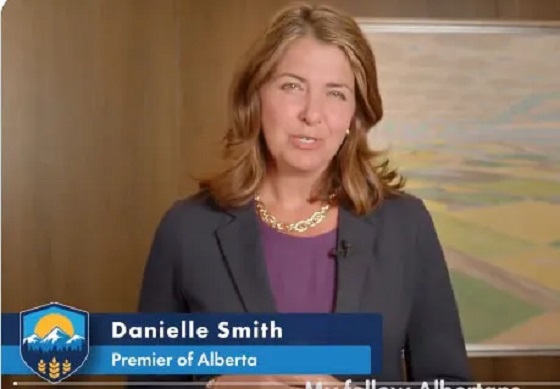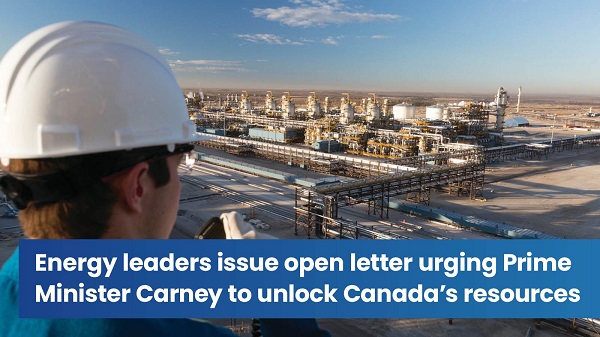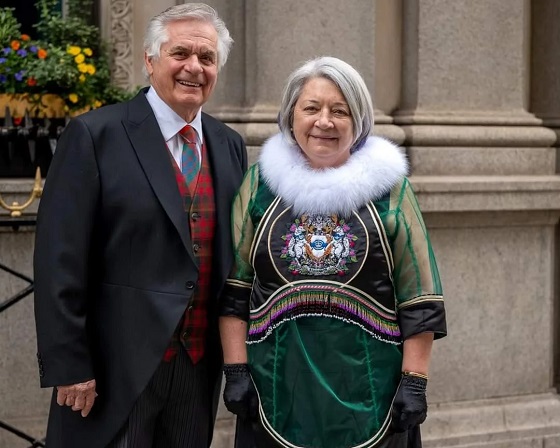Alberta
Province setting up Alberta Office to Combat Trafficking in Persons
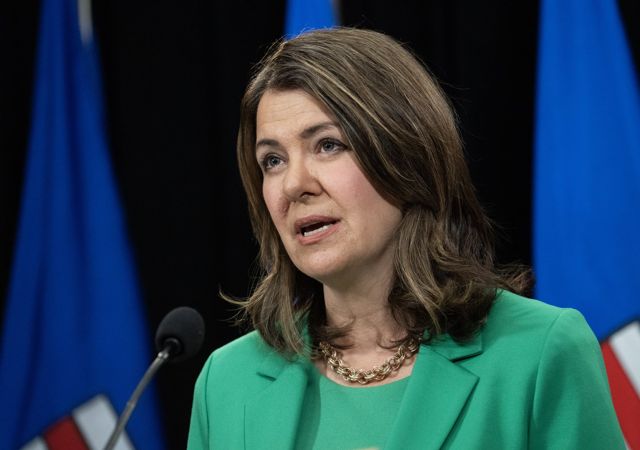
Fighting human trafficking with community partners
Alberta’s government is partnering with three community organizations and investing $4 million to create the Alberta Office to Combat Trafficking in Persons.
Human trafficking is a serious crime that violates the freedoms and rights of individuals, including children, and attempts to destroy all personal identity and relationships. The three main categories of human trafficking are sex trafficking, labour trafficking and the trafficking of organs. Between 2011 and 2021, more than 3,500 incidents of human trafficking were reported across Canada. Many incidents go unreported, often due to fear among victims and survivors.
To fight against human trafficking, Alberta’s government developed the Alberta Human Trafficking Task Force, which submitted its final report in August of 2021. The report has five primary recommendations for government to assist in combatting human trafficking. The first of these is to create an Alberta Office to Combat Trafficking in Persons, which will facilitate the implementation of the remaining recommendations. Alberta’s government has committed $4 million over two years to make this office a reality.
“We can’t afford to close our eyes to the problem of human trafficking. And we can’t afford to ignore those who are at risk of being trafficked or those who have been trafficked. I’m proud that our government is creating this Office to Combat Trafficking in Persons to keep fighting this scourge on society.”
Operation of the Alberta Office to Combat Trafficking in Persons will be led in partnership by #NotInMyCity, Native Counselling Services of Alberta (NCSA) and REACH Edmonton Council for Safer Communities. Under their leadership, the office is another step closer to connecting survivors and victims of human trafficking to important supports and services.
In addition to the work with victims and survivors, the Alberta Office to Combat Trafficking in Persons will enhance public awareness and establish a more effective data collection process. This data will monitor the effectiveness of service delivery and help close gaps in tracking cross-jurisdictional trafficking incidents.
“The first step to fighting human trafficking is to raise awareness of the issue and its presence right here in Alberta. We are grateful to have strong partnerships with organizations that have proven to be effective in this, along with directly supporting survivors and victims. Every investment made into the combating of human trafficking is helping restore the humanity and freedom that every individual deserves.”
#NotInMyCity is a non-profit organization working to prevent, disrupt and end human trafficking and sexual exploitation. Since 2016, the organization has been building community alliances to spur collective action, always learning from and elevating the voices of victims and survivors. The organization is an important education and awareness resource for affected sectors and all Albertans.
“This milestone wouldn’t be possible without the countless organizations and individuals who shared their experiences and expertise in our journey with Alberta’s Human Trafficking Task Force. Combating human trafficking requires collective action, and we applaud the province for taking a collaborative approach with the community.”
Native Counselling Services of Alberta (NCSA) has operated in the province for more than five decades with a focus on fair and equitable treatment for Indigenous people across Alberta. From supports for family and youth to restorative justice to the active pursuit of reconciliation, the NCSA has had an important and positive impact on supports and assistance for Indigenous people in the province.
“We are advocating for Indigenous people in Alberta and committed to educating others on the important issues of exploitation and human trafficking. Understanding the Indigenous worldview and the resilience of Indigenous individuals, families and communities is a gift of learning. We are here to help and hear the people.”
REACH Edmonton Council for Safer Communities has brought together community members and organizations for more than a decade to address social challenges, advance community safety and build relationships between cultural minority communities and police services. Their experience in engaging and convening diverse community partners to find and fill service gaps will benefit the new office.
“Human trafficking is a complex problem that requires a systems approach to tackle, with multiple partners working in unison and leveraging our collective strengths and expertise. REACH is looking forward to helping build up and operate the new office to help make Alberta a safer place for everyone.”
With community partners now selected, work is underway to set up, organize and staff the office. The office will share updates on the progress of this work in the coming months.
Quick facts
- The task force was part of the Alberta government’s platform commitment to implement a nine-point Action Plan to Combat Human Trafficking.
- All nine points of Alberta’s Human Trafficking Action Plan have been implemented, or implementation is ongoing.
- Police services in Canada reported more than 3,500 incidents of human trafficking between 2011 and 2021, with the vast majority of victims (96 per cent) being women and girls, and one-quarter of victims under the age of 18.
- The most overrepresented victim group was Indigenous women and girls.
- Those interested in learning more about human trafficking, how to recognize it and how to help can take #NotInMyCity’s 30-minute online e-learning course Mobilizing Communities to Disrupt Sexual Exploitation and Sex Trafficking in Canada.
Related information
Alberta
Alberta’s Justice and Public Safety Ministers shoot down Ottawa’s firearm buyback failure
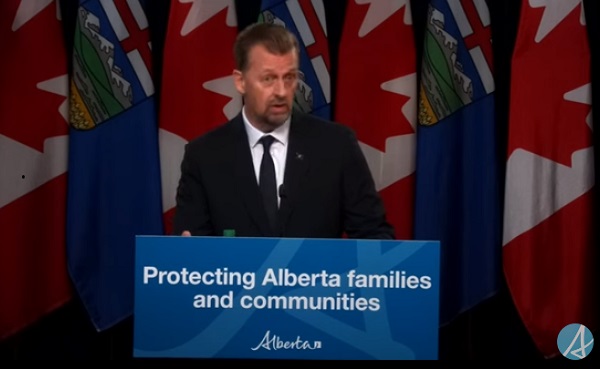
Minister of Justice Mickey Amery and Minister of Public Safety and Emergency Services Mike Ellis issued the following statement on the federal government’s gun grab:
“Since the federal government first introduced its firearms confiscation scheme, Alberta’s government has been clear that we oppose any policy that undermines law-abiding firearms owners, including ineffective and expensive buyback programs that do not combat the criminal use of firearms.
“Albertans and Canadians have been rightfully concerned that attacking law-abiding firearms owners does not address the spike in illegal gun crime under the federal Liberal government.
“This confiscation scheme is not about public safety. The federal Minister of Public Safety said himself that he doesn’t think that the police can properly enforce the program and acknowledged that the Ontario Provincial Police will not enforce the program in that province. Further, the minister has made it very clear that they are only keeping this program to satisfy Liberal voters in Quebec.
“The Prime Minister told Canadians in a Sept. 10 radio appearance that this buyback program is a ‘voluntary return for compensation’ and is about getting crime down and keeping communities safe. Not to mention leaked audio that shows the minister himself is doubtful this policy will be effective or enforced. Now, the federal government has changed its tune.
“Alberta’s government has already taken action by stopping municipalities from implementing arbitrary patchwork firearms policies and preventing anyone in Alberta from seizing, storing or destroying firearms without a license from Alberta’s Chief Firearms Officer.
“Simply put, Alberta’s government will not be enforcing this gun grab, and we will make clear to law enforcement that this is not an enforcement priority. We expect them to focus their time and resources on real provincial policing priorities – like violent criminals, not hunters and sport shooters.
“We will also continue to advocate for Alberta to regulate the legal use of firearms so Albertans can continue to own, collect and use firearms for sport shooting and hunting.
“The Liberal government should end this program, which will waste over $700 million and counting and directly attacks firearms owners, and instead prioritize measures that will actually keep Canadians safe.”
Alberta
Federal policies continue to block oil pipelines

From the Fraser Institute
By Tegan Hill and Elmira Aliakbari
Prime Minister Carney’s recently released list of five projects—which the government deems to be in the national interest and will expedite—doesn’t include a new oil pipeline for western Canada in general or Alberta in particular. The reason given was that no private developer stepped forward to finance or build one. But the reason for that is not a mystery: Justin Trudeau’s damaging energy policies continue to drive away oil and gas investment even though his successor campaigned on a different, more pragmatic approach. It’s no wonder Albertans are frustrated.
Promising to make Canada the world’s leading “energy superpower,” the Carney government in the spring introduced Bill C-5, the “Building Canada Act,” to give the federal cabinet sweeping powers to circumvent existing laws and regulations for projects deemed to be in the “national interest.” In effect, cabinet and the prime minister are empowered to pick winners and losers based on vague criteria and priorities. But while specific projects will be expedited, so far nothing has been done to undo the damaging federal policies that have hamstrung Canada’s energy sector over the last decade.
Trudeau-era changes to the regulatory system for large infrastructure projects included: Bill C-69 (the federal “Impact Assessment Act”); the West Coast tanker ban (as spelled out in federal Bill C-48); and the federal cap imposed exclusively on oil and gas emissions. These have hindered energy investment and development and impeded prosperity, not only in energy-producing provinces, but across the country.
The Energy East and Eastern Mainline pipelines from Alberta and Saskatchewan to the east coast would have expanded Canada’s access to European markets. But the Trudeau government rendered the projects (Energy East and the Eastern Mainline) economically unprofitable by introducing new regulatory hurdles that ultimately forced TransCanada to withdraw from the project.
A year after taking office, the Trudeau government simply cancelled the Northern Gateway pipeline, an already approved $7.9 billion project that would have transported crude oil from Alberta to the B.C. coast, thus expanding Canada’s access to Asian markets. As for Trans Mountain, the one pipeline project that did survive the Trudeau years, after the private investor was frightened off by regulatory hurdles and delays and the federal government took over, costs sky-rocketed to $34 billion—more than six times the original estimate.
With policies like these still in place, it’s no wonder investors aren’t lining up to put big money into Canadian oil and gas. Just how great the discouragement has been is indicated by the 56 per cent inflation-adjusted decline in overall investment in the oil and gas sector between 2014 and 2023 (from $84.0 billion to $37.2 billion).
That decline in investment has had and will continue to have big consequences for the western provinces, particularly Alberta, where energy is a key part of the economy. But it would be a mistake to think the costs are limited to Alberta. From 2007 to 2022, Albertans’ net contribution to federal finances (total federal taxes they paid minus federal money spent on or transferred to them) was $244.6 billion. A strong Alberta helps keep taxes lower and fund public services across Canada.
Canada urgently needs new oil pipelines to tidewater. The U.S. is currently the destination for 97 per cent of our oil exports. This heavy reliance on a single customer leaves us exposed to policy shifts in Washington, such as the recent threat of tariffs on Canadian energy. Expanding pipeline infrastructure both westward and eastward would help diversify our export market into Asia and Europe, as well as strengthen our energy security.
Prime Minister Carney’s short list of projects is another blow to western Canada, and especially Alberta. There’s an obvious reason no private developer has stepped forward to finance or build a new oil pipeline: the Trudeau government’s damaging energy policies. The federal government needs to undo these policies and allow the private sector to make Canada an energy superpower.
-

 Alberta2 days ago
Alberta2 days agoAlberta preparing to protect pro-family laws by invoking notwithstanding clause: leaked memo
-

 Business23 hours ago
Business23 hours agoPublic Safety Minister admits gun buyback program is waste of money and resources – 742,000,000 projected cost to taxpayers
-

 Business2 days ago
Business2 days agoCrown corporations dish out $190 million in bonuses
-

 International1 day ago
International1 day agoCarney’s Canada has recognized a psycho “state” that doesn’t exist
-

 Health2 days ago
Health2 days agoRFK Jr.’s immunization committee recommends against MMRV vaccine for toddlers
-

 Health1 day ago
Health1 day agoMedical experts urge Supreme Court to protect women’s sports from ‘transgender’ males in landmark case
-

 Focal Point2 days ago
Focal Point2 days agoWhite House Announces Tylenol–Autism Link, Opens Door to Vaccines
-
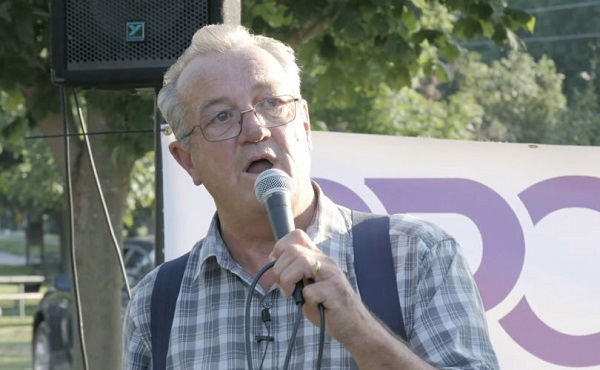
 COVID-192 days ago
COVID-192 days agoCOVID charges dropped against Canadian politician who opposed mandates, lockdowns
